Ahead of the June 2019 presidential election in Kazakhstan, the Deputy Minister of Foreign Affairs of the country, Roman Vassilenko, in an interview with N. Sethurupan, reiterates how Kazakhstan has developed into a well-regarded Eurasian state through its bilateral relations with European states, infrastructural development, and regional relations in Central Asia, through various EU-related strategies and other domestic strategic ties in the Eurasian community.
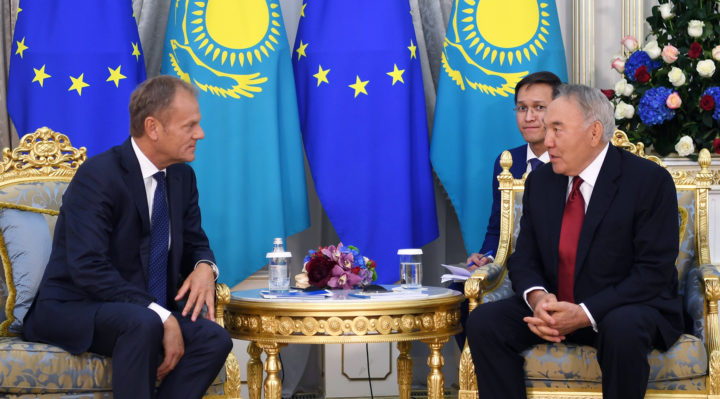
– You have a special and important role in the region. We highly appreciate your reasonable and responsible approach to the transit of power. I think that all of Europe was impressed by this step,” the President of the European Council noted. – ( Photos from akorda.kz)
In this interview on the eve of last month’s Eurasian Media Forum in Almaty, he talks about the achievements of the government, led by President Nursultan Nazarbayev for almost thirty years until his resignation last March – especially in the areas of infrastructural development and international conflict resolution strategies – the highs and lows of the present Kazakhstan state, vis-a-vis various political conflicts amongst neighbours, the role of the forthcoming election for the country, and the need for the international community to reckon with a country that is fast becoming a Eurasian powerhouse. Here are the excerpts below:
Roman Vassilenko: Over the past fifteen years, we have been bringing together not only media experts and professionals, but also politicians, global leaders, business leaders, scholars from think tanks, et cetera, to discuss salient issues of the day, and try to look into the future.
So, the word Eurasian Media Forum is a bit of a misnomer, but because it is such a wide-range event that creates an atmosphere of free discussion, it is valued by the participants. Hence, year after year, it has more and more interesting speakers and attendees.
I hope you will enjoy in the next two days in Almaty. Kazakhstan is indeed the first country on the way from China to Europe, and it’s not surprising that an American journalist recently labelled Kazakhstan as “the buckle in the belt” of the Belt and Road Initiative, because without the buckle, the belt will not hold.
You are quite right that this cannot but impact the development of the region or the dynamics of geopolitics in this part of the world. Going forward, I would say that Kazakhstan has embraced that initiative fully, it is part of our strategic thinking. The Belt and Road Initiative was launched in Astana, as it was called then, now Nur-Sultan, in September 2013, by President Xi Jinping of China. He spoke at the university here and outlined this vision. However, before that was done, we ourselves had been making efforts to create both hard and soft infrastructure for Kazakhstan, in order for her to be able to play a role as the connecting bridge in the heart of Eurasia, just as it used to be centuries ago, along the Silk Road.
It is common knowledge that the Silk Road basically disappeared with the advent of maritime transportation, and the competing interests between the Russian and British empires. Central Asia was sealed off from the rest of the world for very, very long time. It was certainly sealed during the Soviet times because there was virtually zero trade going East, towards China, or going south, towards Afghanistan.
So, what we did, even before this Belt and Road Initiative was launched, was build infrastructure in Kazakhstan. We built new railways and new roads. Speaking of railways, we have built 2,500 kilometers of new railways, reconnecting the west and the east of the country.
In the past, in the Soviet times, those connections were done from the southeast to northwest, then to Russia, where all the raw materials were shipped for processing. There were virtually zero connections among the eastern and western regions of the country. So, we have done that. By the way, when we talk of new railway constructions since the year of independence, 1991, that number of 2,500 kilometers of new railways is larger than the length of new railways built in all other member countries of the Commonwealth Independent States, including Russia. We have also built 5,000 kilometers of new motor roads, including the 2800km stretch of the Western Europe-Western China highway that cuts across Kazakhstan.
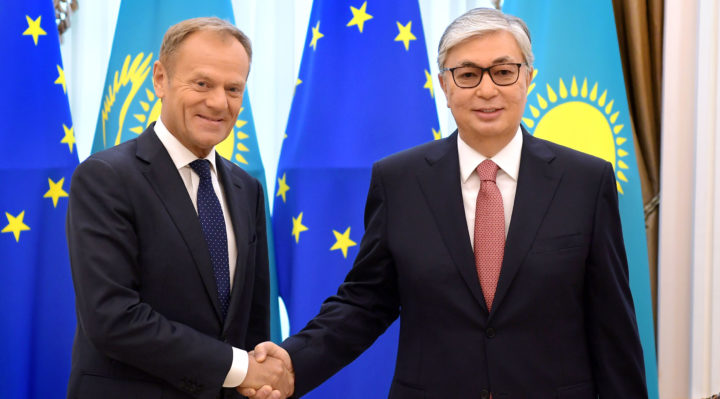
In terms of soft infrastructure, President Nazarbayev, in 1994, proposed the creation of the Eurasian Union, which is not a recreation of the Soviet Union, but an economic union, where interests of all participants are taken into consideration, and where all matters of principle are resolved based on the principle of consensus. This is currently happening in Eurasian Economic Union, which was founded in Astana, our capital, on 29th May, 2014. So, we are coming to the fifth anniversary of that union, which now includes five countries: Armenia, Belarus, Kazakhstan, Kyrgyzstan and Russia.
The union is, first and foremost, a customs union. It is a union aimed at achieving the four freedoms of movement – labour, goods, capital and services. The customs union is working and it means that there are now only two customs borders on the way from China to Europe. One is the border between China and Kazakhstan, the other is a border between Russia or Belarus and Poland. There, the goods go through the European common market into the European Union. So, that has removed a lot of obstacles to the land-based transportation across Kazakhstan.
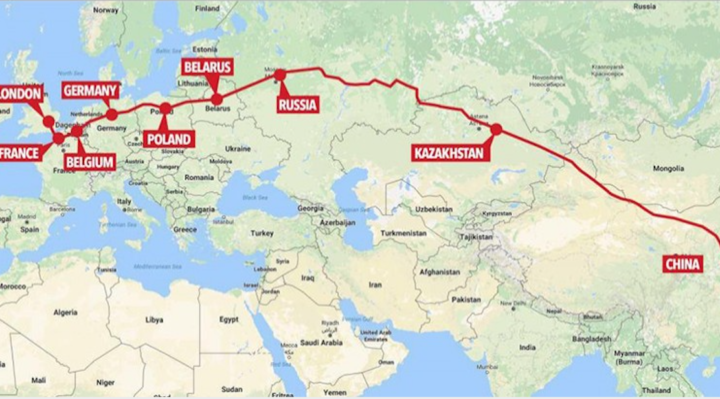
As a result, since 2011, we have seen the doubling of container transportation through Kazakhstan from China to Europe, and backwards. In 2010, there was zero container traffic across Kazakhstan, last year, we had 365,000 containers moving both ways. These containers go hundred percent loaded from China to Europe, and 50 percent loaded from Europe to China.
Of course, you need to find something to ship back to China is the global workshop. It ships its goods to Europe. Still, there are examples of successful transportation being done by European companies from Europe to China. For example, fiber cellulose is shipped to China from Finland, engines for Volvo cars are shipped to China from Sweden, French vines are shipped to China by train, just to mention a few.
Right now, Kazakhstan implements fifty-five joint projects with China worth 27 billion dollars. These are, to the largest extent, Chinese investments. These are not loans, and that means that this cooperation between Kazakhstan and China is a stable one. It’s one where the relationship does not create dependency, as in the case of other countries. Here, it’s more of an equal relationship.
The Kazakhstan economy is robust. It is worth about 200 billion dollars in terms of GDP value. Kazakhstan is a middle-income country. In fact, according to the World Bank and the UN, it is an upper middle-income country. Our bilateral trade is also balanced, it’s not in one direction. We, for example, have the European Union as our biggest trading partner, accounting for fifty percent of our trade. Then, in terms of bilateral relations, Russia is number one country, with about 18 percent of our trade, and China, second, with about 12 percent of our external trade.
That gives you an idea about how these relations are balanced.
Another notable feat is that Kazakhstan has attracted 320 billion dollars in foreign direct investments since independence. The overwhelming majority of these investments are Western, European and American.
Another example of how these relations are balanced is seen in the oil and gas sector in the country, where we have Western, European and American, companies, accounting for about 45 percent of oil production, and Chinese companies accounting for about thirty percent of oil production. We have Kazakhstan national oil companies accounting for about 20 percent of our oil and gas production, and the rest is accounted for by other countries. So, Kazakhstan has worked on a political level to make sure that these relations in Central Asia, between Kazakhstan and our largest neighbours, Russia and China are stable. We have done this through the establishment of both bilateral relations and multilateral frameworks.
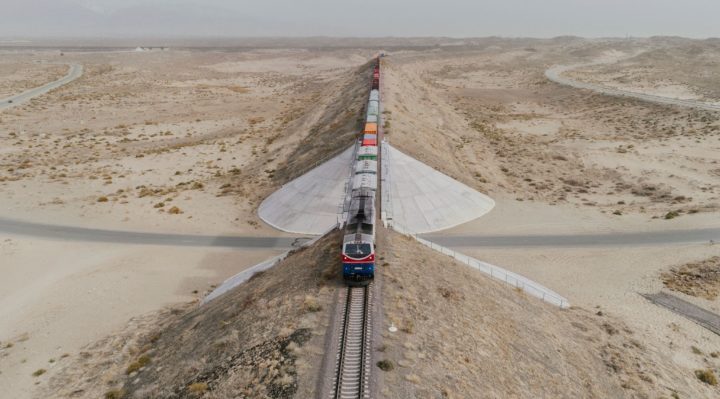
These are organizations such as the CIS or the Eurasian Economic Union, beginning with Russia and other countries. Moreover, there is the Collective Security Treaty Organization with Russia and countries, like Armenia, Belarus and Tajikistan, and other organizations such as Shanghai Cooperation Organization with China, Russia, and now, with India and Pakistan as full members since 2017.
Furthermore, I will highlight an organization, which is called the Conference on Interaction and Confidence-Building Measures in Asia (CICA). CICA works on interaction and confidence building measures in Asia. This was an initiative proposed by Kazakhstan in 1992, along the lines of the Organization for Security and Cooperation in Europe (OSCE). And right now, that organization brings together 27 countries in the Eurasian region; stretching from Israel and Iran; to India and Pakistan; to China and Vietnam; to Russia and other countries in the CIS. In fact, it is, perhaps, the only other organization outside of the UN that includes both Israel and Iran as members. Also, up until recently, there was only one organization that included India and Pakistan. Now, India and Pakistan are members of Shanghai Cooperation Organization.
All these achievements were made possible by the country through the efforts of our first president, Nursultan Nazarbayev, who is also holding the title of leader of the nation. In recognition of his contributions to the establishment of the country as an independent state, he participated in the second BRI forum in Beijing in April after acting as president in the first forum in 2016. In his address to the participants of the forum, he, in fact, called for the Concept of Three Dialogues to be implemented in Eurasia, and I think this is worth looking at.
President Nazarbayev said that there should be a three-level dialogue. One is among the four key players internationally right now – the US, the EU, Russia, and China – that can deliberate on global security matters and global arrangements, so to speak.
The second one is about cooperation between these two security-related organizations in Eurasia – OSCE and CICA.
And the third dialog the first president of Kazakhstan proposed was the economic dialogue among the EU, Eurasian Economic Union, ASEAN and Shanghai Cooperation Organization. We are now going to pursue these initiatives and ideas, because we think they are relevant for the international community and for the relations in Eurasia.
N. Sethurupan: Speaking of the Chinese, is China’s “One Belt, One Road” used for public purpose, business purpose or any other purpose as well? Some countries have said Kazakhstan became ‘Safe Haven’ for the Chinese economical interventions to Europe.
Roman Vassilenko: I don’t know who thinks that. I wouldn’t even comment on this because I think it is not what this Belt and Road Initiative is about.
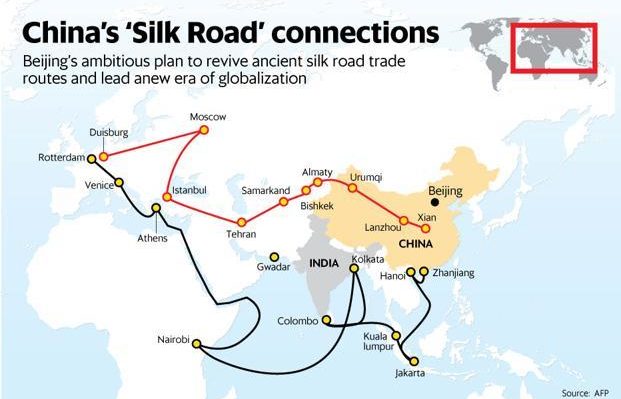
N. Sethurupan: Can you compare this with Northern Sea Route? It’s now connecting with the Russian initiative. How can it damage other Asian countries in Asia and Africa?
Roman Vassilenko: You know I wouldn’t use the word damage. Instead, I would say that there is growing competition in terms of the available transportation routes.
However ambitious we could be, we expect that there would be about two million containers transported across Kazakhstan from China to Europe in few years. That, however, is only a very small percentage of the overall volume of fifty million containers that are being transported annually between China and Europe by sea. So, maybe the northern route will be regarded as a competition. But, however ambitious we could be in terms of our statements, we have to be realistic that this southern maritime transportation routes are still going to be for a long while, the most widely used.
It’s cheaper and about twice or three times as long as the land based transportation, and herein is our advantage. So, we are saying that if you need to have your goods delivered from China to Europe faster then that’s the railroad. That’s the road that is used by companies, such as Hewlett Packard, which produces computers, Apple, the producers of iPhones, etc. They ship through Kazakhstan from China because they need their products transported faster, and this transportation network offers a 15-day delivery, as opposed to 30 or 40 days by sea.
N.Sethurupan: How do you see the Ukraine and Iranian crisis? How do they affect Kazakhstan economy and currency value because of the affected oil price?
Roman Vassilenko: Speaking of the currency,it’s been stable, it has been kept stable for more than a year. Let me say this. First, Kazakhstan has been a very strong supporter of dialogue, cooperation and peaceful resolution of conflicts since the very beginning of our independence.
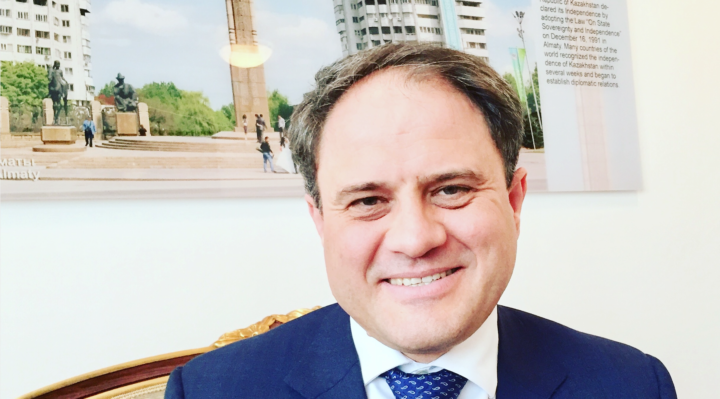
And that is why we have supported the resolution of the Ukrainian crisis from the very beginning. Kazakhstan and President Nazarbayev had played an important role in organizing the Minsk one and the Minsk two meetings, which have so far been the only viable options for the resolution of the crisis. Concerning Iran, Kazakhstan has hosted two rounds of talks on the Iranian nuclear program, Kazakhstan has participated in the implementation of Joint Comprehensive Plan of Action (JCPOA), and Kazakhstan is strongly in support of keeping the JCPOA. We have, in fact, as I said, participated in the implementation by shipping raw uranium to Iran, paid for by the Norwegian government, in exchange for Iran shipping enriched uranium to Russia, so the Norwegian government also participated in this in a very concrete way.
Right now Kazakhstan is very much in favour of the resolution of all these tensions among the global powers, which I mentioned earlier. However, the situation with [US relations with] Iran and China are different, because [with China] there are trade conflicts. There are tariffs and counter tariffs being placed on each other, and this cannot but impact the trade between China and US, but also it cannot but impact our trade with China.
Similarly, with Russia, sanctions that the West imposed on Russia and Russia’s counter measures against the West have an impact on our economy. We are in this situation where we are affected by actions of others and we have no say. We shouldn’t have any responsibility for the actions of others, but in some ways, we are affected in a negative way by all these stand offs.
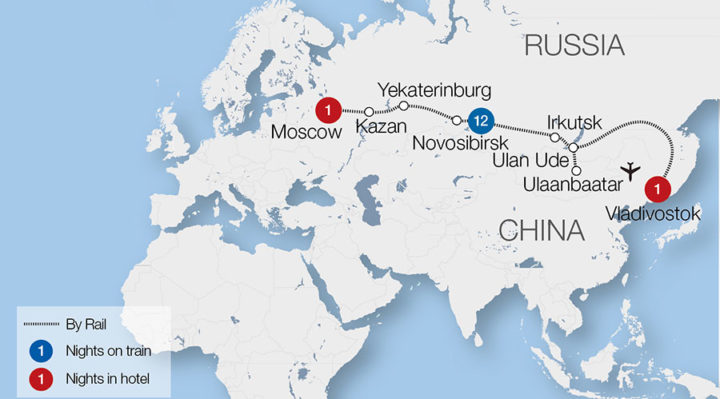
So that’s why we are in full support of any initiative internationally to help resolve these differences among these players and decrease the tensions. That’s why President Nazarbayev proposed the 3D initiative.
We just hosted the 12s round of Astana process talks a few weeks ago. We have always said that we would provide the facilities, the grounds, and be the hosts for these talks. We did not participate in these talks, because they are done by the so-called guarantor estates – Russia, Turkey, Iran, – as well as the Syrian government, with the participation of UN special envoy and Norwegian diplomat Geir Pedersen.
Speaking of Norway, we are very close countries. There is only one country in between us (laughs), because Russia borders Kazakhstan and then borders Norway. But if you look at history, there would be a lot of commonalities found in our histories and our national psyches, so to speak.
You know the Kazakhs were nomads from the East, while the Norwegians were nomads of the seas. And we have set up and then built up this National Fund in Kazakhstan based on the Norwegian model. Now, Norwegian fund is one trillion dollars while ours is eighty billion dollars, which is also reasonable. We use resources of this fund for rainy day purposes, and try to replenish after.
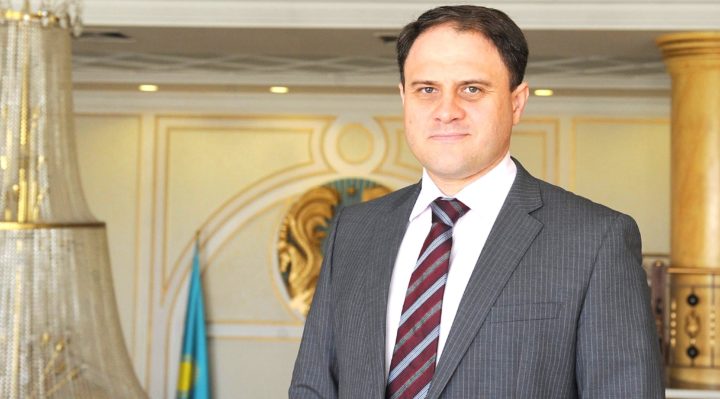
Also, like Norway, Kazakhstan is a very strong advocate for nuclear non-proliferation and nuclear disarmament, just like Sweden as well as like Finland. We have, in fact, hosted the speaker of the Swedish parliament (Riksdag). He visited not only Astana, but he travelled to former Semipalatinsk nuclear test site which were shut down by President Nazarbayev in 1991, and this was the test site where Soviet Union conducted 456 nuclear tests. So, Norway has contributed immensely to the global peace keeping process by financial contributions et cetera.
Kazakhstan has now also begun that work. Our first contingent of peacekeepers was deployed last year to Lebanon to serve in the UN field service contingent under the Indian command and we are now going to expand this. So, this is another area where we find strong commonalities with Norway. We want people in Norway to know more about Kazakhstan because I think there are just so many interesting rooms for cooperation. Not to mention interesting commonalities in culture. I’ve been to Norway many times, I have many, many friends there. And I was told (I wasn’t served) that Norwegians, just like Kazakhs, serve boiled sheep head also. It is such a rare commonality. You don’t find many nations that have that in their national cuisines.
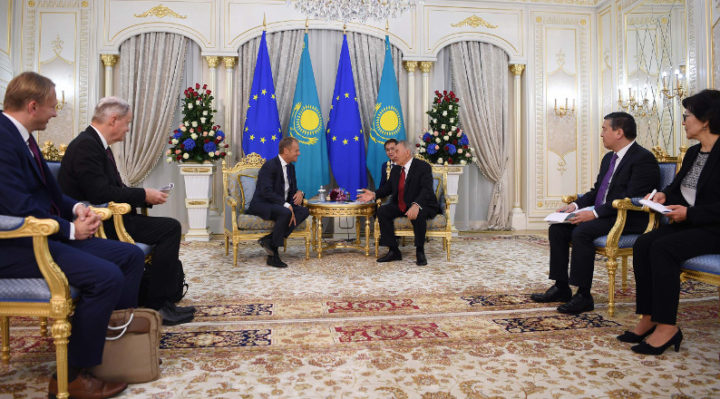
I would also highlight the important political moment in Kazakhstan now, because we are going through a political transit – we are going through an election campaigs. The presidential election is set for June 9th, and this is already the most competitive election in Kazakhstan’s history, as nine candidates sought to run. Seven candidates are registered to run, including a woman contesting to be president for the first time in our history. We are naturally looking forward to a very interesting campaign because these candidates represent various interests and political platforms. For example, there is the liberal platform, there is pro-business platform, there is a communist running, and, of course, a representative of the ruling Nur Otan party.
So, I think it is important for the international community to realize at this stage that, this is a critical moment for Kazakhstan, but it is being done in a stable and orderly way. It is important that this election is seen as the most competitive in Kazakhstan history, and as the next step forward in Kazakhstan development. It is important that the result of the election is embraced by the international community because this will be the expression of the will of the people of Kazakhstan.
I think that even at this stage, we can already talk about the commitment of all the candidates running to preserve Kazakhstan’s international commitment towards playing a constructive role in this part of the world, and to be a partner of the international community in resolution of the global issues, such as the Syrian conflict that you mentioned earlier, or towards being the partner in the economic development of our region, where we have been seeing very promising trends in relations among all Central Asian states in the past two to three years.
